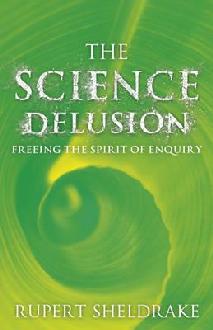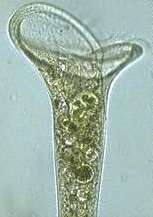Science Set Free
 The Science Delusion by rebel scientist Rupert Sheldrake challenges the current scientific dogma that life is mechanical and purposeless. His chapters ask: “Are the laws of nature fixed? Is nature purposeless? Are minds confined to brains?” The title is a bit misleading but perhaps it’s a dig at Richard Dawkins (of ‘God Delusion’ fame), who describes living things as ‘machines’. The US edition title is Science Set Free, and it’s Sheldrake’s aim to break free from rigid materialistic science. Anyone who has ever had a pet, kept bees or grown a tree, knows that plants and animals are living organisms with a sense of purpose, not just an assembly of chemicals:
The Science Delusion by rebel scientist Rupert Sheldrake challenges the current scientific dogma that life is mechanical and purposeless. His chapters ask: “Are the laws of nature fixed? Is nature purposeless? Are minds confined to brains?” The title is a bit misleading but perhaps it’s a dig at Richard Dawkins (of ‘God Delusion’ fame), who describes living things as ‘machines’. The US edition title is Science Set Free, and it’s Sheldrake’s aim to break free from rigid materialistic science. Anyone who has ever had a pet, kept bees or grown a tree, knows that plants and animals are living organisms with a sense of purpose, not just an assembly of chemicals:
All living organisms show goal-directed behaviour. Developing plants and animals are attracted towards developmental ends…Even the most ardent defenders of the mechanistic theory smuggle purposive organising principles into living organisms in the form of selfish genes and genetic programs.– Rupert Sheldrake
Even the smallest entities seem to have a form of consciousness. He describes remarkable single-celled swamp creatures, called Stentor (photo), which have a memory despite having no nerve endings (synapses). Sheldrake writes most lucidly about science and philosophy, and he’s not afraid to theorise about fringe science events (which he explains with his rather cryptic theory of ‘morphic fields’). Read a review.
swamp creatures, called Stentor (photo), which have a memory despite having no nerve endings (synapses). Sheldrake writes most lucidly about science and philosophy, and he’s not afraid to theorise about fringe science events (which he explains with his rather cryptic theory of ‘morphic fields’). Read a review.
Tags: consciousness, reviews, science
December 17th, 2012 at 11:26 pm
You’ve just highlighted my small but growing dilemma about killing flies and small bitie creatures. I’ve started to mutter apologies. Where to from here?
December 18th, 2012 at 7:58 am
Hi Pam, I have no philosophical answer, except that to say flies are useful decomposers; and the rural house we are staying in uses a ‘dustbuster’ to suck up the many flies and release them outside and alive.